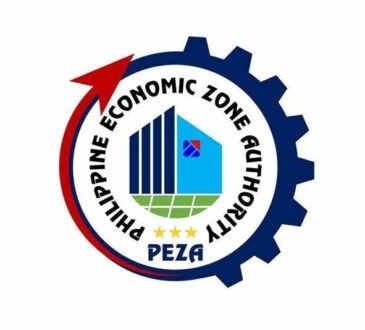Budget 2024: Pharma industry seeks better incentives to increase investments in R&D, grow market size to $120-$130 bn

With an aim to grow India’s pharmaceutical industry’s size to $120-$130 billion by 2030, while increasing its global market share to 7% by then, the Indian pharmaceutical industry has sought more incentives from the government to increase its investments in the research and development (R&D) of pharmaceuticals in the country.
The Indian pharma industry aims to grow not only in its export markets, but also become self-reliant in the long run.
“The focus needs to be on creating an ecosystem and a set of policies that are conducive for the industry to invest more in R&D and innovation, enhance quality standards to increase its market accessibility in export markets and become self-reliant in the years to come,” stated Sudarshan Jain, secretary general of Indian Pharmaceutical Alliance, in his expectations from the upcoming Budget 2024.
“This will strengthen India’s position as the top producer by volume and one of the top three by (market) value by 2047.”
Also Read: Govt sanctions ₹700 crore for setting up pharma and med tech centres
The knowledge-driven industry is currently valued at $50 billion, with a global market share of 3.6% by market value. According to data from Statista, revenue from the domestic pharmaceuticals market is expected to reach $13.16 billion in 2024. Further, growing at a compound annual growth rate (CAGR) of 4.70%, it is expected to reach $16.56 billion by 2029.
A global opportunity
India is the largest producer of generic drugs globally, supplying 20% of the total global generics volume to over 200 countries. It also supplies around 60% of the total global vaccine requirement, contributing 40% to 70% of the World Health Organisation’s (WHO) demand.
The industry further contributes about 2% to India’s gross domestic product (GDP), while creating employment for around 3.5 million people in the country.
Industry body Organisation of Pharmaceutical Producers of India (OPPI), which represents various global research-based pharma firms in India, is optimistic about continued reforms in policies aimed at bolstering innovation in the industry and streamlining its regulatory processes.
Suggesting the need to accelerate R&D and innovation in the country, the industry bodies have continued to push the government to explore various methods to incentivize R&D investments, such as deductions on R&D expenses, research-linked incentives for MNCs, and corporate tax concessions.
“Recognizing the high-risk, long-gestation nature of R&D, we suggest extending the scope of section 115BAB of the Income Tax Act, 1961, to companies solely engaged in pharmaceutical research and development and providing a 200% deduction rate on R&D expenditures,” said Anil Matai, director general of OPPI.
“This would significantly boost our ability to undertake essential research and development, including clinical trials and patent registration.”
Also Read: Centre plans to restructure drug pricing committee
Furthermore, Matai also pitched for establishing an effective intellectual property (IP) rights regime, which is critical for driving growth and encouraging research-based pharma companies, both global and Indian, to introduce innovative therapies in India towards addressing unmet medical needs.
OPPI had made representations to the finance ministry during consultations for the Budget 2024.
An intelligent IP regime
Indian pharma firms concur with the introduction of an IP rights regime. “One key area of focus is strengthening the framework for intellectual property. A robust IP system will incentivize companies to invest in groundbreaking research and development, leading to the discovery of new life-saving drugs,” said Nikhil Chopra, CEO and whole-time director of JB Pharma.
The budget, Chopra added, could explore initiatives that encourage the development and production of value-added generics, along with increasing the government’s support in skill development, which will be crucial for the industry.
Experts believe the Indian pharma industry has a vital role to play in achieving the aim of patient welfare and it also provides India with leverage in world affairs.
To maintain its position as a world-class supplier of affordable, quality-assured drugs, it is paramount for India to make bold strategic forays into innovation, newer markets, products and technologies.
The new Narendra Modi-led National Democratic Alliance (NDA) government’s support in the form of policy measures and regulatory interventions will remain integral to driving this growth for India, industry experts said.
Support much needed
Over the past few years, the central government has taken several initiatives to help India become self-sufficient in active pharmaceutical ingredients (API) and key starting materials (KSM), by launching production linked incentive schemes (PLI 1.0 & PLI 2.0).
Further, the government has also notified the revised Schedule M under the Drugs and Cosmetics Act, 1940, to improve the quality practices of pharmaceutical manufacturing. It has also launched the scheme for Promotion of Research and Innovation in Pharma MedTech Sector (PRIP) as a tool to encourage R&D in the sector.
The Department of Pharmaceutical (DoP) aims to foster innovation and transformation in the med-tech sector through the PRIP.
Also Read: Pharma department seeks report on drug misuse, eyes NDPS Act inclusion
Dr Arunish Chawla, secretary, DoP, in a recent pharma event, revealed that the DoP is setting up an internal project monitoring unit to identify projects that have a proof of concept and can be eligible for disbursement under the PRIP scheme to boost research and innovation in the industry.
“The Meditech industry is growing in double digits. We have started exporting imaging devices like X-ray machines, CT scans, and ultrasounds; we have started exporting body implants and you will see that going forward this part of the industry will grow in lockstep, meaning growing equally strong,” Chawla said.
“Five years down the line, you will see that we have largely narrowed down the gap between the exports and the imports, and this industry will also become export-oriented,” he added.
Further, the industry believes that to attract investment and contribute to a more resilient and future-ready pharmaceutical industry under the Atma Nirbhar Bharat initiative, the government should provide incentives for investments in bonds issued by pharmaceutical companies.
3.6 Crore Indians visited in a single day choosing us as India’s undisputed platform for General Election Results. Explore the latest updates here!




